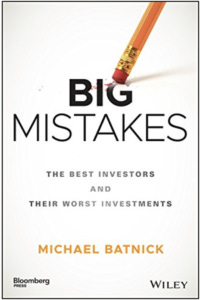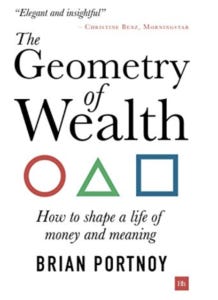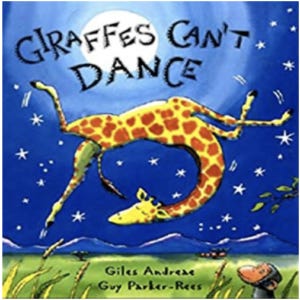The Best Books I Read in 2018
I am a notoriously slow reader compared to my colleagues, but I managed to sneak in a few great books this year. There so many books on my reading list that it feels I may never get to them all. I’m often reading something that’s not current. Maybe that makes my list a little different than the thousands of best books of the year lists circulating on the internet.
For what it’s worth, here they are.
Bad Blood
John Carreyou
The one book I couldn’t put down this summer was John Carreyou’s real life thriller about his time spent reporting on Silicon Valley start-up Theranos for the Wall Street Journal. I found myself waking up at 5:00am on vacation to finish reading this page turner. The first time I heard about Theranos founder Elizabeth Holmes, she was a billion dollar CEO on the cover of Time Magazine. I found it odd that such a young person with no scientific background had created a revolutionary blood testing system, but who was I to judge? Carreyou has perfected the art of turning investigative reporting in to a thrilling novel.
Facilitating Financial Health: Tools for Financial Planners, Coaches and Therapists
Brad Klontz, Rick Kahler, and Ted Klontz
This was required reading for a course in Behavioral Finance. Every financial planner should read this book. Klontz dives deep in to the inner workings of our beliefs about money and how they affect our financial decisions. Money is the number one source of stress in relationships, yet therapists tend to shy away from learning basic financial advice. For the course, I was required to test some of the exercises in the book and came away with a better understanding of my inner beliefs as well as techniques for helping clients.

Big Mistakes: The Best Investors and Their Worst Investments
Michael Batnick
It may seem self serving to list my Michael’s book since I work with him, but there was no better book on investing published in 2018. As investors, we should all be in tune with our mistakes and try to learn from them. It took me a few months to figure out my biggest mistake as an investor, but knowing it changes the game.

Homo Deus: A Brief History of Tomorrow
Yuval Noah Harari
It took me several years to read this follow up to Harari’s blockbuster Sapiens. In my defense, I have a 22 month old son and have been working on a Masters in Financial Planning in my free time. I read this book on my lunch breaks over many days, but it was no less captivating. I was in the middle of this book when I started the Behavioral Finance course, and the concepts overlapped enough to use the book as a source in my research papers. Harari’s vision of the future is mind blowing, and we can already see some of his predictions from 2016 coming to fruition with the recent manipulation of human DNA by a scientist in China.

The Geometry of Wealth: How to Shape a Life of Money and Meaning
Brian Portnoy
When Brian came through New Orleans this spring and told about his forthcoming book, I couldn’t wait to read it. He beautifully outlines what matters more than anything about money, that it is a tool to accomplish our hopes and dreams. No amount of money will bring us happiness unless we understand the reason we are so eager to have it.

A Gentleman in Moscow
Amor Towles
I love novels, and I attended an event in New Orleans this spring where Cokie Roberts recommended this gem. It took me to post Soviet revolutionary Russia when the communists were figuring out their plan to run the government and the country. A former aristocrat bides his time in a beautiful Moscow hotel, as a prisoner, trying to make sense of it all.

Giraffes Can’t Dance
Giles Andreae
I spend a lot of time reading children’s books these days. Most of them are underwhelming. I found this book drifts seamlessly through the plot, which includes a wonderful life lesson. As with most children’s books, I can recite this one from memory, and the prose flows beautifully. My son loves pointing out any monkeys he spots by saying, “Ah Ah”. He can’t quite say, “oo oo, ah ah” yet.

How Good Do You Want to Be?: A Champion’s Tips on How to Lead and Succeed in Work and in Life
Nick Saban
Saban wrote this book after he won the National Championship at LSU, and the copy I read is purple and gold. The coach I love to hate shares some real gems on winning at life. My personal favorite; perfect the process, don’t focus on the outcome. My copy has a hilarious typo. Saban calls Alabama’s Tuscaloosa stadium, Jordan-Hare. That’s the stadium name of their arch-rival, Auburn.

The post The Best Books I Read in 2018 appeared first on The Belle Curve.




